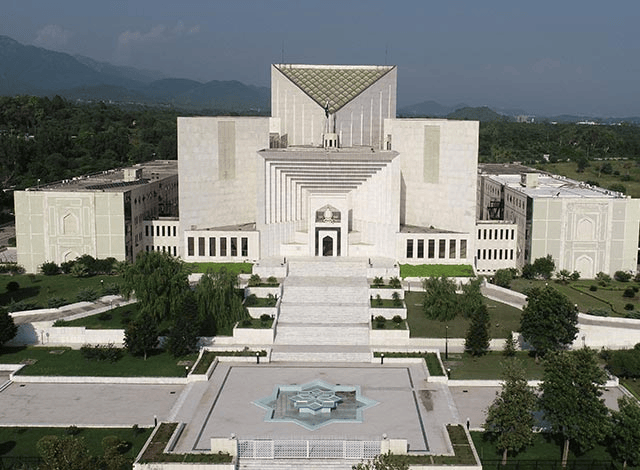- Web Desk
- 2 Hours ago
SC to announce Review of Judgments and Orders Act case verdict tomorrow
-

- Web Desk
- Aug 10, 2023

ISLAMABAD: The Supreme Court of Pakistan is set to deliver its verdict in the Review of Judgments and Orders Act case tomorrow.
The decision will be announced after a three-member bench headed by Chief Justice of Pakistan Umar Ata Bandial reserved the judgment on June 19.
The government had enacted Review of Judgments and Orders Act in May but several petitioners had challenged the law in the Supreme Court. This law allows for the reconsideration of judgments and orders issued by the Supreme Court in cases that have implications for the general public.
The Review of Judgments and Orders Act case is a legal challenge to a new law passed by both houses of parliament in May 2023, which allows for a wider scope of review petitions in the Supreme Court.
The new law provides that any person aggrieved by a judgment or order of the Supreme Court in its original jurisdiction under Article 184(3) of the Constitution, which deals with matters of public importance, can file a review petition before a larger bench of the Supreme Court.
The law also states that the review petition shall be heard by a bench consisting of all the judges of the Supreme Court who are not parties to the original judgment or order, or at least seven judges, whichever is higher.
The law was challenged by several petitioners, including Ghulam Muhayuddin and Zaman Virdag, who argued that the law was unconstitutional, ultra vires, and an encroachment on the judicial authority of the Supreme Court.
They contended that the law violated the principle of separation of powers, the independence of judiciary, and the doctrine of finality of judgments. They also claimed that the law was enacted with mala fide intentions to influence the pending cases against Justice Isa and to undermine the credibility of the Supreme Court.
Supreme Court judges’ basic salary increased by 20%
The government defended the law, saying that it was enacted to provide an effective remedy for those who are aggrieved by the judgments or orders of the Supreme Court in its original jurisdiction.
The government maintained that the law was in accordance with the Constitution and did not interfere with the judicial functions of the Supreme Court. The government also denied any malafide motives behind the law and asserted that it was aimed at ensuring transparency, accountability, and justice.
A three-member bench of the Supreme Court, headed by Chief Justice Umar Ata Bandial, heard the case and reserved its verdict on June 19.
The bench expressed its concerns over some aspects of the law, such as its retrospective effect, its applicability to pending cases, and its potential to create discrimination among litigants. The bench also observed that laws like this should be formulated carefully and after taking advice from experts.
The verdict is expected to be announced tomorrow at 9:30 am. The verdict will have significant implications for the legal and political landscape of Pakistan, as it will determine the fate of several review petitions.
The verdict will also set a precedent for future cases involving matters of public importance under Article 184(3) of the Constitution.




